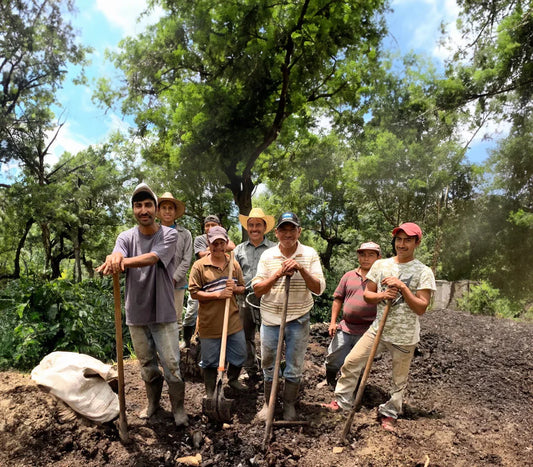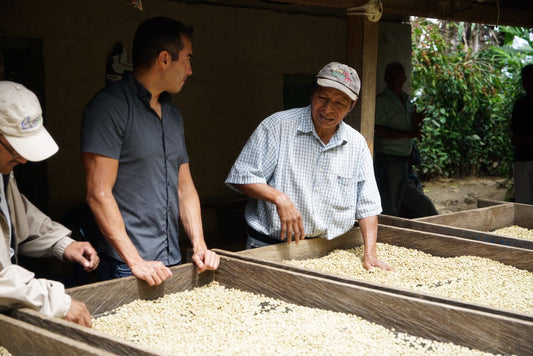
Reggaetón: How Latin Music Took Over the World
It prompts an involuntary hip-shake from even the most conservative of listeners.
Who remembers a time before reggaetón?
A vibrant blend of reggae, dancehall, and Latino music, it has been the world's most popular music genre for more than 20 years - and shows few signs of stopping.
Jump to:
In 2018, the consumption of reggaetón albums outpaced both EDM and country music in the US, while eight of YouTube's top ten videos in the same year were of the genre.
Where Does Reggaetón Come From?
The first sounds of reggaetón appeared in Panama in the late 20th century, when Panameños and descendants of Jamaicans who had worked on the Panama Canal started to mix cultures.
Part of this included a number of Panameños, such as Renato, El General, Nando Boom, who began to sing Spanish lyrics over typical Jamaican dancehall songs and beats. This gave rise to a genre in the 1980s, known as "reggae en español".
Then, in 1995, DJ Nelson, a Puerto Rican DJ and producer, created a mixtape with the characteristics of modern reggaetón, and he named it, "Reggae Maratón Vol 1".
Later, he accidentally combined the words in a tongue twist while talking to his colleagues and the term "reggaetón was born. This ended up being the final name of his mixtape: "Reggaetón Live, Vol 1".
While some attempted to spearhead movements to ban the genre, reggaetón finally achieved widespread acceptance when it started to be associated with Latino identity as a whole.
"Reggaetón was a fountain of unadulterated joy for many, warranting close dancing and unrepentant sexuality as a form of catharsis," Jhoni Jackson wrote in Crack Magazine.
"And as its prominence rose, spreading to other Latin American countries and the US, the genre became an unmatchable source of pride for Latinos."

How Despacito Changed the International Music Scene
While reggaetón music had enjoyed global popularity since 2004 with Daddy Yankee's hit Gasolina, it wasn't until 2017 that the genre well and truly smashed the music charts.
The song, Despacito, originally by Luis Fonsi and Daddy Yankee, immediately caught the attention of listeners around the world and shot to fame as an international chart-topper.
It was the first Spanish-only song in the history of Latin music to become such a huge success across the globe.
Of course, when Fonsi was writing the song, he wasn't trying to cross over into a new market or create the next bilingual smash, he was just doing what he did every day.
But then he got a call from Justin Bieber: he wanted to record a remix.
The remix was released in April 2017 and features Bieber singing some verses in English and the chorus in Spanish. It was a huge success, racking up more than 20 million views in just 24 hours.
The song was number one for 16 consecutive weeks, stayed on the Billboard Hot Latin Songs Chart for over 100 weeks and has over 7 billion views on YouTube.
In an interview with Forbes magazine, Fonsi attributes the success of the remix to the organic process.
"Obviously when Justin did that remix, he sings a bit in English...but it's really a Spanish song," Fonsi says. "It was just that everything lined up correctly and I think that was the true success of the song, the fact that it wasn't forced."
The success of the song catapulted Latin American music, reggaetón in particular, onto the international stage.
As Billboard magazine notes: "There is a clear pre- and post-Despacito effect". Not only did it open the door for Spanish language and Latin American tracks, but it made collaborating with Latinos cool.

How Did Reggaetón Become Popular?
While the song certainly played a role in popularizing reggaetón, much of its success is also thanks to social media and other digital platforms that helped introduce it to a much wider audience.
Today, digital platforms are strong indicators of a song or artist's popularity – and Latinos have continually been dominating top positions.
The Puerto Rican, Bad Bunny, for instance, took the spot for the most-listened-to artist on Spotify for two years in a row in 2020 and 2021, with more than 9.1 billion streams in 2021 alone.
Similarly, stats show that reggaetón is the most-listened-to Spanish-language genre across the globe. A popularity ascribed to the music's catchy rhythm, attractive lyrics and virality on social media.
Fonsi agrees that social media has played a huge role in popularizing Latin American music: "It opens that door to sort of introduce to a new audience what Latin music is all about, what my music is all about".
Of course, this then leads to even more remakes as well as original collaborations between Latino and other artists, which again expands the number of people a song reaches.
In fact, Billboard magazine has noted that "pre-Despacito collaborations between Latin acts and mainstream acts were few and far in between".
But these days collabs are hotter than ever and include work by Beyoncé, Willy William and J Balvin for Mi Gente; Cardi B, Bad Bunny and J Balvin for I Like It; Maluma and The Weeknd for Hawái; Katy Perry, Daddy Yankee and Snow for Con Calma; and Ozuna, Cardi B, DJ Snake and Selena Gomez for Taki Taki.
"Latin music has always been here and it's not like we are re-discovering the wheel," Fonsi says. "But I think that music is in constant evolution and I do think that streaming has a lot to do with it.
"There's a really interesting movement within our own culture that's bleeding over, for lack of a better term, into different languages and cultures and countries. Streaming has helped us share our happiness."


